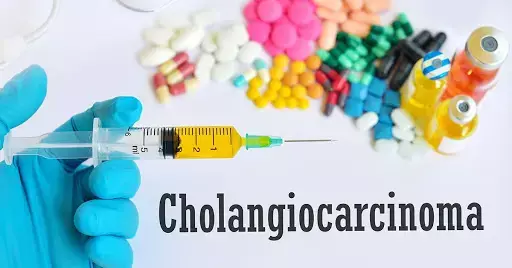- Home
- Medical news & Guidelines
- Anesthesiology
- Cardiology and CTVS
- Critical Care
- Dentistry
- Dermatology
- Diabetes and Endocrinology
- ENT
- Gastroenterology
- Medicine
- Nephrology
- Neurology
- Obstretics-Gynaecology
- Oncology
- Ophthalmology
- Orthopaedics
- Pediatrics-Neonatology
- Psychiatry
- Pulmonology
- Radiology
- Surgery
- Urology
- Laboratory Medicine
- Diet
- Nursing
- Paramedical
- Physiotherapy
- Health news
- Fact Check
- Bone Health Fact Check
- Brain Health Fact Check
- Cancer Related Fact Check
- Child Care Fact Check
- Dental and oral health fact check
- Diabetes and metabolic health fact check
- Diet and Nutrition Fact Check
- Eye and ENT Care Fact Check
- Fitness fact check
- Gut health fact check
- Heart health fact check
- Kidney health fact check
- Medical education fact check
- Men's health fact check
- Respiratory fact check
- Skin and hair care fact check
- Vaccine and Immunization fact check
- Women's health fact check
- AYUSH
- State News
- Andaman and Nicobar Islands
- Andhra Pradesh
- Arunachal Pradesh
- Assam
- Bihar
- Chandigarh
- Chattisgarh
- Dadra and Nagar Haveli
- Daman and Diu
- Delhi
- Goa
- Gujarat
- Haryana
- Himachal Pradesh
- Jammu & Kashmir
- Jharkhand
- Karnataka
- Kerala
- Ladakh
- Lakshadweep
- Madhya Pradesh
- Maharashtra
- Manipur
- Meghalaya
- Mizoram
- Nagaland
- Odisha
- Puducherry
- Punjab
- Rajasthan
- Sikkim
- Tamil Nadu
- Telangana
- Tripura
- Uttar Pradesh
- Uttrakhand
- West Bengal
- Medical Education
- Industry
Incretin-based diabetes drugs don't increase cholangiocarcinoma risk: Study

Sweden: A recent study using nationwide data from three countries found the use of DPP4 inhibitors and GLP-1-receptor agonists to be not associated with a significant increase in cholangiocarcinoma risk compared with sulfonylureas use. The study appears in the journal Diabetologia.
Dipeptidyl peptidase 4 (DPP4) inhibitors and glucagon-like peptide-1 (GLP-1)-receptor agonists are incretin-based drugs that are commonly used for the treatment of type 2 diabetes. Recently, concerns have been raised regarding a potential association between incretin-based drugs and cholangiocarcinoma. Considering this, Peter Ueda, Clinical Epidemiology Division, Department of Medicine, Solna, Karolinska Institutet, Stockholm, Sweden, and colleagues examined this association in nationwide data from three countries.
For this purpose, the researchers used data from nationwide registers in Sweden, Denmark, and Norway, 2007–2018, and conducted two cohort studies, one for DPP4 inhibitors and one for GLP-1-receptor agonists, to investigate the risk of incident cholangiocarcinoma compared with an active-comparator drug class (sulfonylureas).
The cohorts included patients initiating treatment episodes with DPP4 inhibitors vs sulfonylureas, and GLP-1-receptor agonists vs sulfonylureas. Hazard ratios were estimated from day 366 after treatment initiation to account for cancer latency.
The main analyses of DPP4 inhibitors included 1,414,144 person-years of follow-up from 222,577 patients receiving DPP4 inhibitors (median follow-up time, 4.5 years) and 123,908 patients receiving sulfonylureas (median follow-up time, 5.1 years) during which 350 cholangiocarcinoma events occurred.
The research yielded the following findings:
- Use of DPP4 inhibitors, compared with sulfonylureas, was not associated with a statistically significant increase in the risk of cholangiocarcinoma (incidence rate 26 vs 23 per 100,000 person-years; adjusted HR, 1.15; absolute rate difference 3 events per 100,000 person-years).
- The main analyses of GLP-1-receptor agonists included 1,036,587 person-years of follow-up from 96,813 patients receiving GLP-1-receptor agonists (median [IQR] follow-up time, 4.4 years) and 142,578 patients receiving sulfonylureas (median follow-up time, 5.5 years) during which 249 cholangiocarcinoma events occurred.
- Use of GLP-1-receptor agonists was not associated with a statistically significant increase in the risk of cholangiocarcinoma (incidence rate 26 vs 23 per 100,000 person-years; adjusted HR, 1.25; absolute rate difference 3 events per 100,000 patient-years).
The researchers concluded that in this study using nationwide data from three Scandinavian countries and sulfonylureas as the comparator, neither the use of DPP4 inhibitors nor the use of GLP-1-receptor agonists was associated with a significantly increased risk of cholangiocarcinoma.
Reference:
Ueda, P., Wintzell, V., Melbye, M. et al. Use of incretin-based drugs and risk of cholangiocarcinoma: Scandinavian cohort study. Diabetologia 64, 2204–2214 (2021). https://doi.org/10.1007/s00125-021-05508-1
Dr Kamal Kant Kohli-MBBS, DTCD- a chest specialist with more than 30 years of practice and a flair for writing clinical articles, Dr Kamal Kant Kohli joined Medical Dialogues as a Chief Editor of Medical News. Besides writing articles, as an editor, he proofreads and verifies all the medical content published on Medical Dialogues including those coming from journals, studies,medical conferences,guidelines etc. Email: drkohli@medicaldialogues.in. Contact no. 011-43720751


